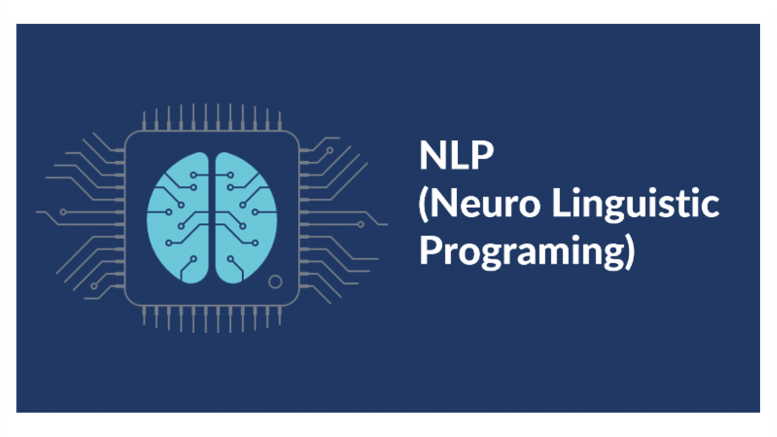I read this quote somewhere — The quality of our lives is determined by the quality of our communication—with others and, most importantly, with ourselves.
The interesting part is that we are made of different protoplasmic content – so it be different personality types, every one’s journey, behaviour and perspectives are different and hence the need to more understand these aspects which I observe today.
In the fast-paced and evolving corporate landscape, C-suite leaders are tasked with more than just managing teams and driving profits. They must shape culture, make decisive judgments, and foster inclusivity. One of the most profound tools in a leader’s toolkit today is Neuro-Linguistic Programming. Originating in the 1970s, NLP explores the connection between neurological processes, language, and behavioural patterns that have been learned through experience. When applied to leadership, it becomes a transformative tool to enhance communication, tackle unconscious bias, and foster emotional intelligence.
In this article I observe three keyways NLP can help C-suite leaders in shaping better leadership skills and addressing unconscious bias:
- Enhancing Self-Awareness and Communication
At the heart of NLP is the principle that the language we use reflects our internal thought processes. For leaders, becoming aware of these processes can dramatically improve self-awareness and communication. NLP helps leaders identify limiting beliefs or patterns of thinking that may influence their behaviour and decision-making unconsciously.
Consider an e.g., (rather visualise and reflect) that a CEO of a global tech company once noticed that during high-stakes meetings, he frequently dismissed creative solutions from junior staff. Through NLP coaching, he realised that his language was subtly influenced by a belief that innovation could only come from senior executives. By addressing this, he began to communicate more inclusively, leading to a surge of creative input from all levels of the organisation.
An insight that I came across -according to a study by the Neuro Leadership Institute, leaders who practice self-awareness through structured methods like NLP are more likely to cultivate inclusive environments and encourage diverse thinking. This not only helps in breaking unconscious biases but also creates a culture of open communication and trust.
- Reframing Negative Thoughts and Tackling Unconscious Bias
One of the most powerful aspects of NLP is reframing. This is the ability to shift your perspective on a situation, viewing it in a more empowering or constructive light. Leaders often carry unconscious biases—preconceived notions that influence their perception of others based on race, gender, or background. NLP’s reframing techniques allow leaders to challenge these biases and replace negative thought patterns with more objective, unbiased perspectives.
Example: An HR Director of a major financial firm may use NLP techniques to tackle her unconscious bias toward hiring individuals from only Ivy League backgrounds. By reframing her assumptions about what constitutes “top talent,” she started focusing on candidates’ skills, experiences, and potential, leading to a more diverse and inclusive hiring process.
Sharing an insight where it was emphasised that organisations with leaders who are trained in recognising and addressing unconscious bias outperform their peers by up to 33% in diversity and inclusion efforts. NLP helps break mental barriers, encouraging leaders to see beyond their automatic thoughts and make more conscious, equitable decisions.
- Building Empathy and Emotional Intelligence
Empathy is critical for effective leadership, and NLP provides the tools to develop it. Through techniques like mirroring (matching another person’s body language, tone, or pace), NLP encourages leaders to step into the shoes of others, fostering a deeper understanding of their teams’ emotions and perspectives. This enhances emotional intelligence, enabling leaders to build stronger, more authentic connections with their teams.
Imagine this – a leader of of a retail giant can use NLP’s mirroring technique during a conflict resolution meeting with employees who felt unheard. By consciously mirroring their body language and vocal tone, the COO was able to foster a sense of understanding and rapport. This simple act shifted the dynamics of the conversation, diffusing tension and leading to more productive outcomes.
NLP’s focus on empathy helps leaders improve this critical skill, allowing them to connect with their teams on a deeper level and lead with greater emotional awareness.
To conclude, in today’s corporate world, leadership demands more than just strategic thinking. It requires emotional agility, inclusivity, and the ability to see beyond personal biases. NLP provides C-suite executives with the tools to sharpen these abilities. By enhancing self-awareness, tackling unconscious bias, and building emotional intelligence, NLP helps leaders create more inclusive, empowered, and high-performing teams.
For C-suite leaders striving to stay ahead in a competitive environment, adopting NLP practices isn’t just an option—it’s a necessity for transformative, conscious leadership.
The views and opinions published here belong to the author and do not necessarily reflect the views and opinions of the publisher.



Be the first to comment on "The NLP Advantage – How C-Suite Leaders Can Overcome Unconscious Bias & Enhance Emotional Intelligence?"